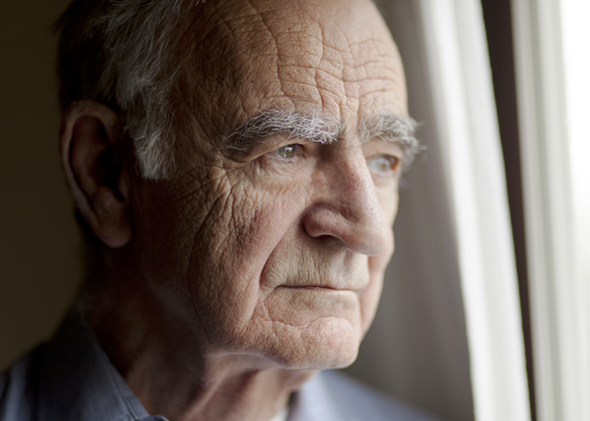
There’s a Kind of Workplace Discrimination No One’s Talking About
Living longer means we can also work longer, but not without facing unfair prejudices against older employees.

As the executive director of Philadelphia’s non-profit Center for Advocacy for the Rights and Interests of the Elderly (CARIE), Diane Menio’s job is to improve the quality of life for older people. Through advocacy, education, training and counseling, her organization helps older people in an increasingly challenging landscape, providing “direct assistance to the elderly, their families, and professionals in the aging field.”
How much of an issue is ageism today?
Ageism has always been out there and we don't talk about it much. I think there's more of an effort lately to get older people in the media and so on, but I think most of us aren't feeling positive about aging, period. When I was young I looked at older people and never thought I'd be there. But guess what? It happens. Even people who are getting older often don't think kindly toward other older people. A lot of volunteer programs are bringing younger people together with older people and hopefully that's helping a little bit. But who knows?
How about workplace discrimination against older people?
You only have to look at the unemployment numbers to see that the numbers of people over 50 who are unable to find another job are greater than those who are under 50. I work at a non-profit and I'm happy to hire older people and there are other non-profits that are as well, but in the private sector it's much more challenging to get a job.
What are some of the risks of unemployment for older people?
Health care is a big issue. People who lose their jobs at 50 or 55 and are now out of the workforce might not have health insurance anymore. If they're getting unemployment they're at a level where they must partially pay on the exchange and they can't get a supplement so they're struggling. That can basically put you in bankruptcy. The other problem in the workforce is that even when older people can get jobs, they are often ones that don't provide those kinds of benefits. They're looking at consulting or jobs that are less than full time so they're not getting the benefits that they need.
Has workplace discrimination gotten worse as the population has gotten older?
Part of the reason it's worse is that more people who are older need to be in the workforce. There was a time when maybe they didn't need to be in the workforce when they were guaranteed pensions and things like that. A lot of people in previous generations worked in companies for 30, 40, or 50 years and then retired. That's less and less the norm. People are not able to retire from their jobs anymore. Statistically, more people are staying in the workforce longer because they need the money.
Is it especially hard for workers to prove that they've been the victims of age discrimination?
The burden of proof can be challenging. As an employer, you can come up with just about anything to show a person is not performing well. If you're putting widgets together at a factory and you screw up on putting the widgets together then it would be easier to make a case but a lot of times that's not what people are doing. It's more subjective than that in a lot of workplaces. And older people often aren't the people who are the first to challenge it.
Do you think there's less support for anti-ageism than other anti-discriminatory causes?
I think so, absolutely. Mostly I think it’s because there's this general sense, because of Social Security and Medicare, that older people are taken care of. And then, of course, there’s the question: Who is ‘older’ anyway? We have the work discrimination rules that say 40 is older. We have Medicare kicking in at 65, and some other programs kicking in at 55. AARP keeps moving younger and younger. So what are we really talking about? When I think of older people, I usually think of those people who are 60 to 65 and above, but there are people younger than that who have issues that might make them operate more like an older person. Age is sometimes an artificial way of looking at things.
In Washington, D.C., some older “power players” are getting plastic surgery to avoid a "use-by" date for their careers. Why is this pressure damaging?
If you just look at media, people like Barbara Walters and Joan Rivers are using plastic surgery to look young. These are role models in our society, and I think they're showing people that aging is not a good thing, that you need to change the way you look.
One Gallup poll found that older people are actually happier with their looks than other age groups. Why might that be?
Maybe they've accepted aging. I look in the mirror and I see a wrinkle here, I see a bulge there — it's not the same way I looked when I was younger. But you get to accept it and there’s a part of me that always says I don't want to go back and be that young person anymore because that wasn't easy either. The greatest thing is to be able to be happy with who you are.
Interview by Jordan G. Teicher.